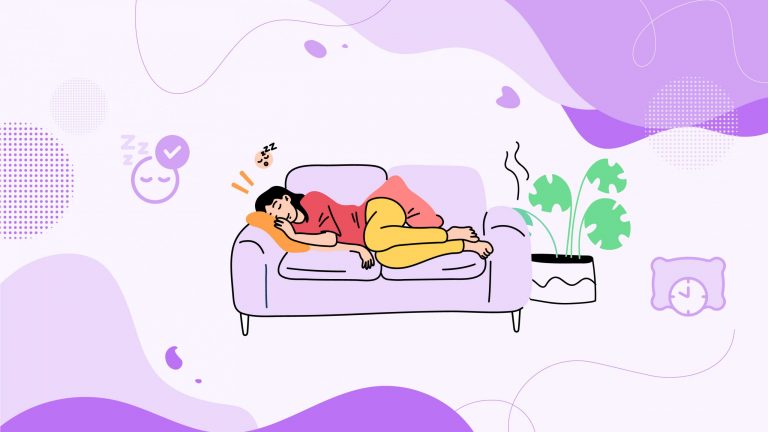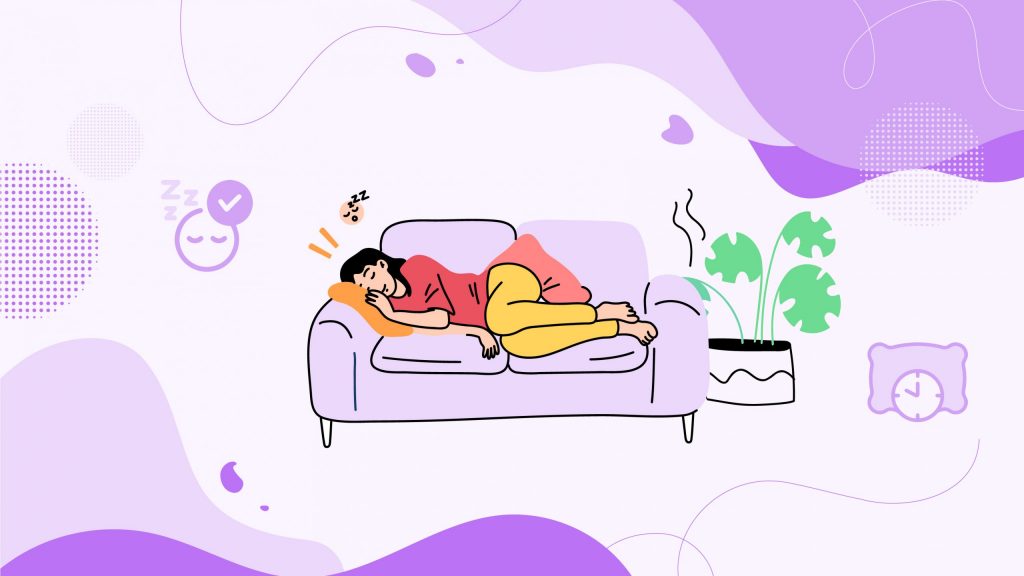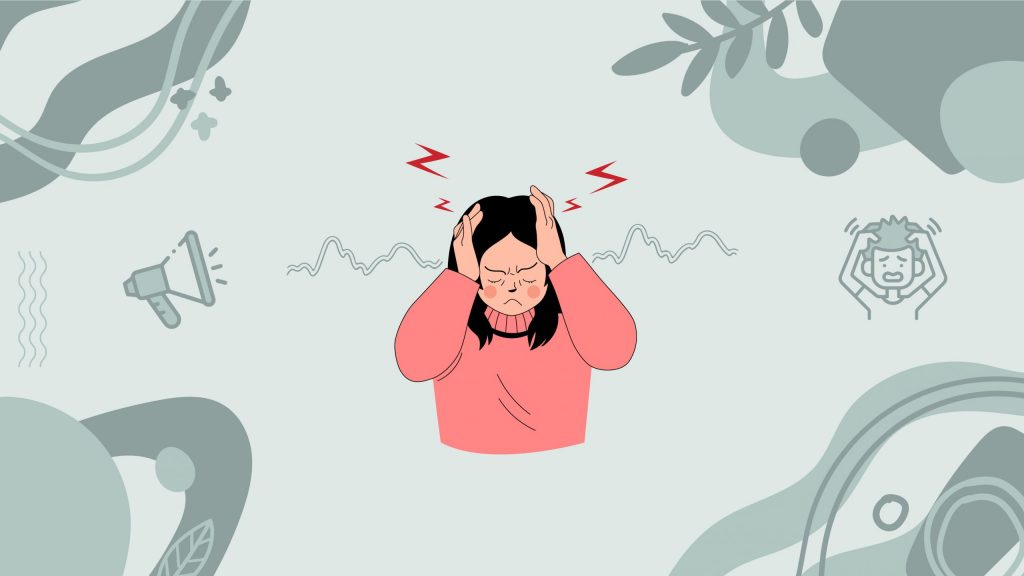There’s nothing blissful than a peaceful night’s sleep and waking up to the best of yourself. A sound sleep with a quiet mind is something that everyone longs for after the restless battles of the day.
We have been working hard all day long and we deserve to have that baby-like sleep at night. And, it’s not impossible, once you achieve that level of a peaceful mind and turn off all those thoughts that are keeping you awake. Let’s see, how!
Restless Nights
We’ve all experienced those frustrating nights where sleep abandons us, leaving us tossing and turning. The mind races with worries, the body refuses to relax, and before we know it, the hours have slipped away, bringing us closer to an exhausting day ahead.
Stressful lifestyle habits, such as excessive screen time and irregular sleep schedules, can disrupt our natural sleep rhythms. Additionally, side effects of medications and underlying mental health conditions like anxiety and depression often exacerbate sleeplessness.
The struggle of restless nights takes a toll on our daily lives, leading to fatigue, irritability, and impaired concentration. This vicious cycle of sleeplessness impacts our productivity, mood, and overall health, making it harder to cope with daily challenges. Recognizing and addressing these issues is essential for breaking the cycle and achieving restful sleep.
Subscribe to newsletter
Get your Gut Health Starter Guide right now.
Elevate your Tuesdays with practical, science-backed wisdom propelling you forward on your gut health journey.

Understanding Mind-Body Connection
Our inability to fall asleep often comes from a complex interplay of neurological and neurochemical factors. When we are stressed or anxious, our bodies produce higher levels of cortisol, the stress hormone, which keeps us alert and awake. This heightened state of alertness disrupts the balance of our nervous system, making it difficult to relax and transition into sleep.
Moreover, lifestyle habits such as excessive screen time before bed can significantly disrupt our circadian rhythm, the body’s internal clock that regulates sleep-wake cycles. The blue light emitted by screens inhibits the production of melatonin, the hormone responsible for inducing sleep, making it harder for us to feel sleepy at night.
Medications for various health conditions can also interfere with sleep patterns. For instance, certain antidepressants and blood pressure medications can cause insomnia as a side effect.
Mental health issues like anxiety and depression can further exacerbate the problem, as the brain struggles to shut off racing thoughts and emotional distress. Our minds become a battlefield, preventing the peaceful surrender to sleep.
To combat these issues, it is crucial to adopt healthier sleep habits. Reducing screen time before bed, creating a calming bedtime routine, and managing stress through techniques like mindfulness and deep breathing can help lower cortisol levels and promote relaxation.
Consulting with a healthcare provider about medication side effects and exploring treatment options for mental health conditions can also make a significant difference. By understanding and addressing the underlying factors of sleeplessness, we can pave the way for more restful nights and improved overall well-being.
Practical Strategies for Better Sleep
Finding comfort and achieving a restful night’s sleep requires a multifaceted approach. Here are some practical strategies to quiet your mind and pave the way for better sleep:
- Establish a Consistent Sleep Routine: Going to bed and waking up at the same time every day helps regulate your body’s internal clock. This consistency reinforces your sleep-wake cycle, making it easier to fall asleep and wake up naturally.
- Create a Relaxing Bedtime Ritual: Engage in calming activities before bed such as reading a book, taking a warm bath, or practicing mindfulness meditation. These activities signal to your body that it’s time to calm down, transitioning you from the busyness of the day to a state of relaxation.
- Limit Screen Time: The blue light emitted by phones, tablets, and computers can interfere with melatonin production, making it harder to fall asleep. Try to avoid screens at least an hour before bed, and consider using blue light filters if you must use electronic devices in the evening.
- Mindful Breathing and Meditation: Techniques like deep breathing, progressive muscle relaxation, and guided meditation can help calm the mind and relax the body. Deep breathing exercises, such as inhaling deeply through the nose, holding the breath for a few seconds, and exhaling slowly through the mouth, can reduce stress and promote a sense of calm.
Progressive muscle relaxation involves tensing and then slowly releasing each muscle group, starting from the toes and working up to the head, which can help release physical tension and induce relaxation. - Evaluate Your Sleep Environment: Ensure your bedroom is conducive to sleep. A cool, dark, and quiet environment can make a significant difference. Consider using blackout curtains to block out light and white noise machines to mask disruptive sounds. Invest in a comfortable mattress and pillows that support your preferred sleep positions.
- Watch Your Diet: Avoid heavy meals, caffeine, and alcohol close to bedtime. These substances can disrupt your sleep cycle and make it harder to fall asleep. Opt for a light snack if you’re hungry before bed, and choose calming, sleep-promoting beverages like herbal tea.
- Seek Professional Help: If lifestyle changes aren’t enough to improve your sleep, consider consulting a healthcare provider. They can help identify any underlying issues, such as sleep disorders or medical conditions, and recommend treatments or therapies to improve your sleep.
Incorporating these strategies into your daily routine can help you achieve a more peaceful and restorative night’s sleep. By prioritizing sleep hygiene and mind-calming techniques, you can enhance your overall well-being and wake up feeling refreshed and rejuvenated.
Finding Peace and A Path to Better Sleep
Anna, a 35-year-old marketing professional, struggled with insomnia for years. Her demanding job and constant stress kept her mind active well into the night. “I would lie awake thinking about work, unable to switch off,” she recalls.
The anxiety of meeting deadlines and the pressure to perform left her feeling exhausted and drained. Each night, she would stare at the ceiling, her mind racing with thoughts about unfinished tasks and looming projects. The lack of sleep began to take a toll on her health, mood, and productivity.
Desperate for a solution, Anna decided to make some changes. She started by establishing a consistent sleep routine, going to bed, and waking up at the same time every day, even on weekends.
She also incorporated mindfulness meditation into her nightly regimen. At first, it felt challenging to quiet her mind, but she persisted. She would sit quietly, focusing on her breath and gently guiding her thoughts back to the present whenever they wandered.
Gradually, Anna noticed a significant improvement. “It wasn’t an overnight change, but slowly, I began to sleep better,” she says. The consistent routine and meditation practice helped her mind unwind and her body relax.
She began to fall asleep faster and enjoy a deeper, more restful sleep. “Now, I wake up feeling refreshed and ready to tackle the day,” Anna shares with a smile. Her productivity at work improved, and she felt more energized and positive throughout the day.
Anna’s journey from restless nights to rejuvenating sleep is a testament to the power of consistency and mindfulness. By understanding the factors that disrupt sleep and implementing practical solutions, she transformed her nights and improved her overall well-being.
Anna’s story inspires us to take proactive steps towards better sleep and peace of mind. Establishing a regular sleep routine, practicing mindfulness, and being patient with the process can make a significant difference.
Remember, achieving restful nights is not just a dream but a reachable reality with the right strategies. It requires patience and consistency, but the rewards are immense. Improved sleep enhances our mood, cognitive function, and overall health.
So, take a page from Anna’s book, and start your journey towards better sleep today. With time and effort, you can reclaim your nights and enjoy the numerous benefits of a good night’s sleep. Sweet dreams!


















